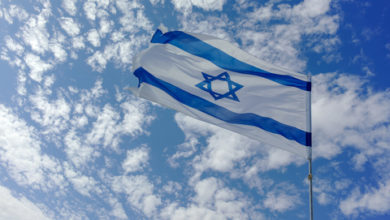Grain from the Land
What is the main characteristic of the holiday of Pesach? At first glance, the answer to this question is simple: It is the Exodus from Egypt! However, if this is so then we are celebrating an event that has not reached an end. It is true that we were released from slavery into freedom, but we did not make it all the way to our land, which was promised to our forefathers. The Exodus created a paradoxical effect of being a nation without any territory. We became a political entity in every way, with government processes, tax collection, covenants and wars, and even a central set of rituals, but without a land of our own. But in spite of this we still recite the Hallel for this release, even though in general “Hallel is not to be said for a miracle that took place outside of the Land of Israel” [Megillah 14a]. The Talmud explains that “until they entered the Land of Israel every land was suitable as a place to sing the praises of G-d. Once the people entered the Land, other lands were no longer suitable.” [ibid].
The initial approval given to singing about the praises of G-d in all the lands can be compared to the process of narrowing down the Divine choice in the book of Genesis. This began with the high status of Adam, the father of humanity, passing through a specific dynasty, until the highest status went specifically to the nation of Israel. There is a universal root as a basis for sanctity of man and a location, but there is a temporary lack of a physical center for sanctity which will shine out over the entire world.
After decades of wandering, the process of the Exodus reaches its completion with the crossing of the Jordan River on the tenth of the month of Nissan. However, the people of Israel still continue to eat manna. When the manna stops, on the day after the Pesach Sacrifice, the people eat from the grains of the land, as is written in the Haftarah on the first day of the holiday. “And they ate from the grain of the land (“mei’avur ha’aretz“) the day after Pesach, matzot and roasted grain, in the middle of this day. And the manna stopped the next day, when they ate from the grains of the land, and the Children of Israel no longer ate manna. And they ate from the produce of the Land of Canaan that year.” [Joshua 5:11-12]. The simple interpretation of the verse is that “the day after the Pesach” is the fifteenth of Nissan, which is the first day of the Holiday of Matzot.
We can conclude that the real entrance into the land, which includes getting sustenance from the grains of the land, took place on the first day of the holiday of Pesach. (This corresponds to the opinion of the author of Responsa Me’il Tzedek, who wrote that one can only perform the mitzva of settling in the Land of Israel by supporting himself from the land.) This implies that the reciting of Hallel on that day is in celebration of the entry onto the land, which gave the final significance to the Exodus from Egypt. Thus, the Holiday of Matzot, which occurs on the fifteenth of the month, is the holiday of entering the land, as opposed to Pesach (a holiday named for the sacrifice), which occurs on the fourteenth and marks when the people left Egypt.
This insight can lead to a better understanding of the words in the Hagadda. “‘Because of this’ [Exodus 13:8] – I can only say this verse when matza and marror (bitter herbs) are lying in front of me.” The word in this verse, “ba’avur,” can be taken to mean “for the ‘avur’” – in order for me to eat the grains of the land, symbolized by matza and marror, G-d did what He did for me and took me out of Egypt.
Source: “AS SHABBAT APPROACHES” – a biweekly column in Shabbat B’Shabbato (Zomet Institute) See: http://www.zomet.org.il/eng – Pesach 5775, issue 1569.




